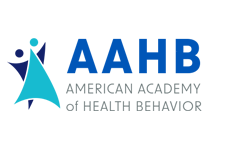Abstract
Weight loss, through a reduction in energy intake and increase in energy expenditure, can reduce diabetes risk in people with prediabetes. However, lifestyle change can be challenging even with positive intentions. The Health Action Process Approach (HAPA) theoretical framework bridges the intention-behavior gap by targeting planning behaviors and strengthening efficacious beliefs for behavioral change. In the current trial, an adaptive design was employed to examine differences in HAPA measures (i.e., planning and self-efficacy) regarding the target behaviors of dietary intake and physical activity (PA). Adults ≥ 21 years old with overweight or obesity and prediabetes (n = 185) received the standard Group Lifestyle Balance (GLB) intervention during the first month of treatment. Weight loss responders (lost > 2.5% of weight) at week five remained in GLB during weeks 5-16; slow responders (lost ≤ 2.5%) were stratified to the adaptive GLB Plus (GLB+) intervention during weeks 5-16. GLB+ augmented self-regulatory skills and practices consistent with HAPA. We conducted mixed model analyses with a group-by-time interaction for fixed effects at four months. GLB experienced greater improvement in behavioral intention for both diet and PA, planning behaviors (action and coping planning) for diet, and self-efficacy beliefs (action and maintenance self-efficacy) for PA compared to GLB+ (all ps < .0125). However, GLB+ also experienced statistically significant improvement in planning and self-efficacy and in energy intake and food group servings (all ps < .01). Whereas an adaptive intervention can be advantageous in improving HAPA measures and food choices, greater focus on increasing PA is needed. Additional research may help to determine effective PA strategies.
Author ORCID Identifier
0000-0002-1002-7288
Creative Commons License

This work is licensed under a Creative Commons Attribution-Noncommercial 4.0 License
Recommended Citation
King, Danielle E.; Miller, Carla K.; Nagaraja, Haikady N.; Fujita, Kentaro; and Cheavens, Jennifer S.
(2024)
"Impact of an Adaptive Worksite Diabetes Prevention Trial on Health Action Process Approach Outcomes regarding Dietary Intake and Physical Activity,"
Health Behavior Research:
Vol. 7:
No.
2.
https://doi.org/10.4148/2572-1836.1218
Included in
Community Health and Preventive Medicine Commons, Dietetics and Clinical Nutrition Commons, Public Health Education and Promotion Commons




